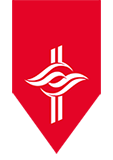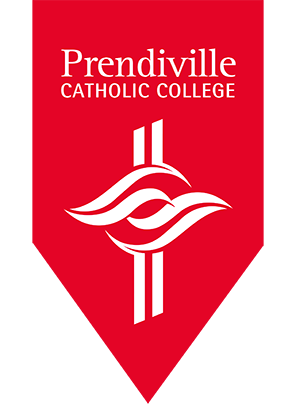English

English
Year 12
Open the panels below for further details.
English (ATAR)
The English ATAR course focuses on developing students’ analytical, creative, and critical thinking and communication skills in all language modes. It encourages students to critically engage with texts from their contemporary world, with texts from the past and with texts from Australian and other cultures. Such engagement helps students develop a sense of themselves, their world and their place in it. Through close study and wide reading, viewing and listening, students develop the ability to analyse and evaluate the purpose, stylistic qualities and conventions of texts and enjoy creating their own imaginative, interpretive, persuasive and analytical responses. The English ATAR course is designed to develop students’ facility with all types of texts and language modes and to foster an appreciation of the value of English for lifelong learning. Students refine their skills across all language modes by engaging critically and creatively with texts. They learn to speak and write fluently in a range of contexts and to create a range of text forms. They hone their oral communication skills through discussion, debate and argument, in a range of formal and informal situations.
The Year 12 syllabus is divided into two units which are delivered as a pair. The notional time for the pair of units is 110 class contact hours.
Unit 3
Students explore representations of themes, issues, ideas and concepts through a comparison of texts. They analyse and compare the relationships between language, genre and contexts, comparing texts within and/or across different genres and modes. Students recognise and analyse the conventions of genre in texts and consider how those conventions may assist interpretation. Students compare and evaluate the effect of different media, forms and modes on the structure of texts and how audiences respond to them. Understanding of these concepts is demonstrated through the creation of imaginative, interpretive, persuasive and analytical responses.
Unit 4
Students examine different interpretations and perspectives to develop further their knowledge and analysis of purpose and style. They challenge perspectives, values and attitudes in texts, developing and testing their own interpretations through debate and argument. Through close study of texts, students explore relationships between content and structure, voice and perspectives and the text and context. This provides the opportunity for students to extend their experience of language and of texts and explore their ideas through their own reading and viewing. Students demonstrate understanding of the texts studied through creation of imaginative, interpretive, persuasive and analytical responses.
Prerequisite: C Grade or higher in Year 11 English (ATAR) or Year 11 Literature (ATAR)
Literature (ATAR)
The Literature ATAR course focuses on the study of literary texts and developing students as independent, innovative and creative learners and thinkers who appreciate the aesthetic use of language; evaluate perspectives and evidence; and challenge ideas and interpretations. The Literature ATAR course explores how literary texts construct representations, shape perceptions of the world and enable us to enter other worlds of the imagination. In this subject, students actively participate in the dialogue of literary analysis and the creation of imaginative and analytical texts in a range of modes, media and forms.
Students enjoy and respond creatively and critically to literary texts drawn from the past and present and from Australian and other cultures. They reflect on what these texts offer them as individuals, as members of Australian society and as world citizens.
Students establish and articulate their views through creative response and logical argument. They reflect on qualities of literary texts, appreciate the power of language and inquire into the relationships between texts, authors, readers, audiences and contexts as they explore ideas, concepts, attitudes and values.
The Year 12 syllabus is divided into two units which are delivered as a pair. The notional time for the pair of units is 110 class contact hours.
Unit 3
Unit 3 develops students’ knowledge and understanding of the relationship between language, culture and identity in literary texts. Students inquire into the power of language to represent ideas, events and people, comparing these across a range of texts, contexts, modes and forms. Through critical analysis and evaluation, the values and attitudes represented in and through texts and their impact on the reader are examined. Throughout the unit, students create analytical responses that are characterised by a confident, engaging style and informed observation. In creating imaginative texts, students experiment with language, adapt forms and challenge conventions and ideas.
Unit 4
Unit 4 develops students’ appreciation of the significance of literary study through close critical analysis of literary texts drawn from a range of forms, genres and styles. Students reflect upon the creative use of language, and the structural and stylistic features that shape meaning and influence response. The unit focuses on the dynamic nature of literary interpretation and considers the insights texts offer, their use of literary conventions and aesthetic appeal. Analytical responses demonstrate increasing independence in interpreting texts and synthesizing a range of perspectives into critical and imaginative responses. In creating imaginative texts, students experiment with literary conventions and reflect on how the created text takes into account the expectations of audiences.
Prerequisite: C Grade or higher in Year 11 Literature (ATAR)
English (General)
The English General course focuses on consolidating and refining the skills and knowledge needed by students to become competent, confident and engaged users of English in everyday, community, social, further education, training and workplace contexts. The English General course is designed to provide students with the skills that will empower them to succeed in a wide range of post‐secondary pathways.
The course develops students’ language, literacy and literary skills to enable them to communicate successfully both orally and in writing and to enjoy and value using language for both imaginative and practical purposes.
Students comprehend, analyse, interpret and evaluate the content, structure and style of a wide variety of oral, written, multi-modal, digital and media texts. Students learn how the interaction of structure, language, audience and context helps to shape how the audience makes meaning. Both independently and collaboratively, they apply their knowledge to create analytical, imaginative, interpretive and persuasive texts in different modes and media.
The Year 12 syllabus is divided into two units which are delivered as a pair. The notional time for the pair of units is 110 class contact hours.
Unit 3
Unit 3 focuses on exploring different perspectives presented in a range of texts and contexts. Students:
- explore attitudes, text structures and language features to understand a text’s meaning and purpose
- examine relationships between context, purpose and audience in different language modes and types of texts, and their impact on meaning
- consider how perspectives and values are presented in texts to influence specific audiences
- develop and justify their own interpretations when responding to texts
- learn how to communicate logically, persuasively and imaginatively in different contexts, for different purposes, using a variety of types of texts.
Unit 4
Unit 4 focuses on community, local or global issues and ideas presented in texts and on developing students’ reasoned responses to them. Students:
- explore how ideas, attitudes and values are presented by synthesizing information from a range of sources to develop independent perspectives
- analyse the ways in which authors influence and position audiences
- investigate differing perspectives and develop reasoned responses to these in a range of text forms for a variety of audiences
- construct and clearly express coherent, logical and sustained arguments and demonstrate an understanding of purpose, audience and context
- consider intended purpose and audience response when creating their own persuasive, analytical, imaginative, and interpretive texts.
Prerequisite: Year 11 English (General)


